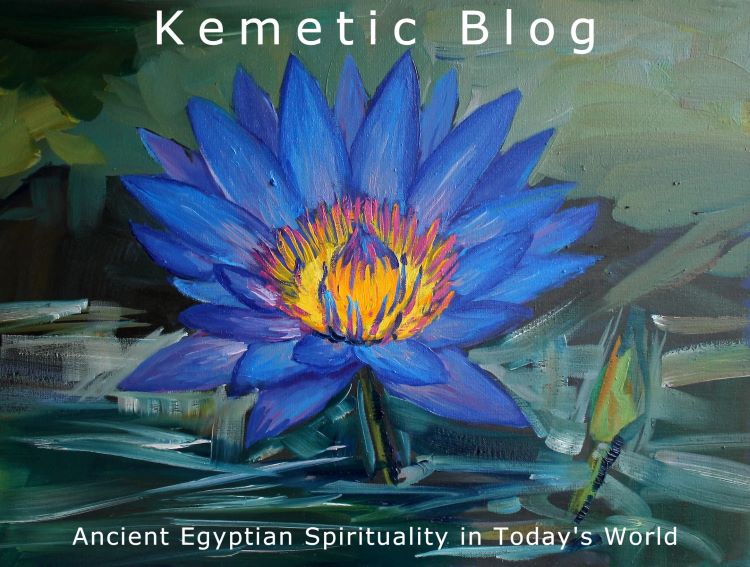
Image ©Scott Rose
It’s with great pleasure that I delve back into Paul Harrison’s book, Profane Egyptologists.
If you’re already familiar with my book reviews at Kemetic Blog, you’ll have noticed they’re quite a slow burn. This is not a reflection on the books I review but rather, on my schedule as a full-time shift worker, part-time student and free-time blogger. Not to mention a dog dad and husband to be. I’ve been carefully sifting through this book since 2021 and to be honest, I’m not even sure if I’ll finish it this year. We shall see. At any rate, let us savour the profanity.
I must say at the start, that not all is rainbows and unicorns in Profane Egyptologists land. I do have some criticism for this book, which is done with respect for the author, who’s still totally awesome and with whom I’d be having a one-sided bromance with, if I wasn’t already engaged. Too much information? Too bad! It’s my blog, and I’ll fanboy if I want to. But let’s get the criticism out of the way first, so we can focus on the many positives this book is laden with in the near future.
I’m serving Profane Egyptologists with due criticism in the hopes that it will help to preserve the agency, autonomy and free-choice of Kemetic pagans. I am passionate about you forming your own opinion; it doesn’t matter if you agree with me or not. What matters is our spiritual freedom as Kemetics; the freedom to make our own decisions regarding our practice, and not having our spiritual lives dictated to us by any other human being but ourselves. We don’t have to be sheeple in Kemetic paganism. We should feel free to express our relationship with ancient Egyptian religion in whatever way feels right to us, without judgement or fear of reprisal.
A few criticisms for Profane Egyptologists
Part III of Profane Egyptologists is entitled, Esoterica and Egyptology which are two main spheres of influence on modern Kemetic practice. One sphere is lauded as a desirable influence, while the other is purported to be less than desirable. Writing this review from the perspective of an intuitive Kemetic, I felt a growing sense of unease from the distinct divisions made between practices which could be considered airy fairy and inaccurate and what is held at the gold standard, that is, what is considered to be concrete and reliable. The latter sphere of Egyptology is, of course based on primary sources extracted from the historical record, which informs Kemetic practice. The former sphere of esoterica is said to come from loosely associated ancient Egyptian themes and miscellanea.
Harrison traces the non-scholarly consideration of primary sources back to Florence Farr and her 1896 book, Egyptian Magic: Occult Mysteries in Ancient Egypt. While it would be quite a stretch to call Farr the first Kemetic neo-pagan, she certainly broke ground for future Kemetic pathways. What’s further notable about Farr was her openness to the mystical (as evidenced by her leadership within the Hermetic Order of the Golden Dawn) and her attention to historical detail. A reasonable conclusion to draw about Farr, as an early practitioner of what included ancient Egyptian religion in modern form, would be that her approach was balanced, holistic, well-informed for her era, and took many different elements into consideration. In other words, her practice was richly developed for what it was. Unfortunately, in Profane Egyptologists, Harrison doesn’t quite see her that way. While Farr is given credit for referencing primary source material, the esoteric aspects of her work are undervalued. Harrison further delineates a hierarchy of Kemetic traditions and practices, ranked according to their adherence to primary sources only, which consists of three levels. Hold onto your isms:
Eclecticism – Traditions and practices which are loosely based on ancient Egyptian themes and miscellaneous esoterica. Inaccurate social constructs (or cultural misunderstandings) of ancient Egypt are often found here. These practices are not considered to be an accurate representation of ancient Egyptian religion.
Revivalism – These practices draw somewhat more reliably from the historical record, while still containing some eclectic elements. These practices are a moderately accurate representation of ancient Egyptian religion with some inherent flaws and weaknesses. This is where Harrison ranks Farr.
Reconstructionism – These traditions and practices employ the most rigorous approach to recreating rituals firmly rooted in primary sources, directly from the field of Egyptology. These traditions bypass esoterica and any loose associations. This is considered the most accurate representation of ancient Egyptian religion.
My bone of contention with the above proposed hierarchy is the suggestion that not all Kemetics are informed equally, as opposed to being informed differently or diversely. The ideology of variance in the quality and superiority of Kemetic practices and indeed, in practitioners themselves, can be reduced to pure discrimination and only promotes a new form of hegemony and imbalanced power constructs, that boost the elite at the expense of ‘the other’; an imbalance which Harrison himself initially sought to address and correct at the start of Profane Egyptologists.
Where did that man go?
If we look at the very beginning, Harrison states that he started writing what would become Profane Egyptologists for his PhD and to ‘address a gap in Egyptological knowledge.’ He also expresses an interest in giving a voice to marginalised people who are ‘sharing Egyptology’s resources’. That’s an important statement. Harrison highlights the fact that Kemetic pagans, insofar as their adherence to the historical record, are consumers of research. Ancient Egypt is very much an owned piece real-estate. If you have squatters living on your property, you have to decide what you’re going to do about them. This book appears to ponder how Kemetic neo-pagans might be appropriately integrated into Egyptological society.
Working in the nursing profession (and surviving in the contemporary climate) has taught me as much about politics as anything else. Any research conducted will always have a political agenda with stakeholders attached, who are invested in some way, in the outcome. Now that we’re getting closer to Harrison’s actual study of Kemetic pagans, we are introduced to the new political machine and power structures that Profane Egyptologists aims to support. It’s about packaging and presenting Kemetic pagans in such a way as to make us tolerable and perhaps even useful to the establishment. Stepford Kemetics, if you will.
As far as creating a new paradigm in the Egyptological community, one in which Kemetic pagans are on par with and are considered equals by the mainstream (consisting of, but not limited to, Egyptologists and other academics) will require a sacrifice. Guess who’s the sacrifice? I must admit, I didn’t see this coming! It was a dark surprise. Who are the scapegoats throughout time, the outsiders, the heretics? Who are the witches burned at the stake? They are the seers, the healers, and the mystics.
Profane Egyptologists goes after the intuitives, who subscribe to esoterica.
This is a Euro-centric and patriarchal pattern of aggression and is as far from ancient Egypt as you can get. How do you suppose ancient Egyptian religion was initially conceived; how were the gods originally discovered; how were the virtues of Ma’at received? Through a shift in consciousness, through intuitive processes, which come from a sacred place deep within ourselves. I know Harrison knows this, who championed other authors like Jeremy Naydler, and his theory of shamanism existing in ancient Egyptian religion long before it was ever slapped with a label that read, shamanism and thus became associated with a specific culture and geographical location. The ability to shift and expand consciousness is not an ability exclusive to the denizens of Siberia. It is your birth right, just as it was the birth right of ancient Egyptians, should you choose to accept it. Or you can devalue it and toss it into a bin labelled miscellaneous esoteric rubbish.
I would take this line of inquiry a step further and assert that our personal beliefs or Unverified Personal Gnosis (UPG) would fall into the previously mentioned category of loose associations and therefore, any Subjective Mystical Experiences that may occur in the lives of Kemetic practitioners, which are dependent on intuitive faculties. If I am correct in making these associations, however loose they may be, it places certain aspects of Kemetic life in a precarious position.
My central message to you, the reader, is to please consider employing both Esoterica and Egyptology in your Kemetic practice. Don’t throw your intuitive faculties away, in an attempt to win acceptance and equality-status from the mainstream. To do so is to murder a part of yourself, a part you need if you want to evolve in a certain way — but again, that’s getting into my own UPG stuff, something that’s not authenticated by an Egyptologist and therefore, could be deemed illegitimate. Some would even say, I am not a true and authentic Kemetic because I do things differently or believe differently, or that I prioritise the historical record differently. No one should assume immunity from similar forms of treatment in such a culture, because we are not operating in a climate of spiritual safety. This is why peer violence in the Kemetic community is so rife. We’re swallowing these ideas, then regurgitating the sick back into the laps of fellow Kemetic pagans. I fully understand now, why The Temple of Set first coined the title, Profane Egyptologists. Profane things are happening in our community, indeed.
Despite the stance I’ve been compelled to take in this review, I still love Paul Harrison. I think he’s a total badass, a bit like Indiana Jones. He educates me, he challenges me, and he makes me think. That’s what any good author and teacher should do, and he’s doing a very good job at that. He and Kate Bush are among my favourite people. I still agree with many of Harrison’s ideas, and I continue to recommend Profane Egyptologists, if you’re willing to take on university-level reading material. I think where Harrison and I perhaps disagree would be in the value placed on the esoteric and subjective worlds within Kemeticism and the contributions these make to ancient Egyptian religion in its modern form. There are many qualities that make up a good Kemetic practitioner, not solely how well they can emulate the available historical evidence.
In fairness, Profane Egyptologists extends a courtesy to people by calling them the names they wish to be known by and not by the names they reject. If you identify as a Kemetic pagan, then you are one. If you are authentically representing yourself, then you are authentic. We are, however, still classified, compared, evaluated and ranked according to a certain standard; a process which is perhaps, unavoidable in a study such as this. Ultimately, all such courtesies and pleasantries begin to sound a bit like lip service. I know exactly where I rank.
What do you think? Let me know in the comment section below.
Thank you for reading Kemetic Blog! Until next time, stay safe and well.
Profane Egyptologists: The Modern Revival of Ancient Egyptian Religion
by Paul Harrison
ISBN 9780367891015
Published December 12, 2019 by Routledge
244 pages
Cover art by Setken

:: Acknowledgement of African Origin The author of Kemetic Blog acknowledges and respects the African ancestral origins of ancient Egypt and recognises the practice of Kemetic paganism as a modern reflection of Traditional African Religion. ::
©Scott Rose / Kemetic Blog – All Rights Reserved.

3 Comments
Amanda
February 1, 2023 at 11:28 pmI respect your commitment to spiritual freedom
Scott Rose
February 2, 2023 at 6:42 pmThanks for that, Amanda.
She Who Gleams Like Faience in the Sun
March 9, 2023 at 10:16 am[…] my previous post, I was left feeling shattered and unsupported when I concluded that an author, who I thought was […]